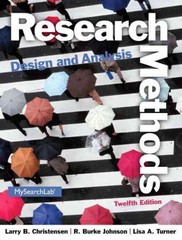Answered step by step
Verified Expert Solution
Question
1 Approved Answer
1 Which one of the following institutions has the ability to create government bonds? a) The President b) The Federal Reserve c) The Treasury Department
1 Which one of the following institutions has the ability to create government bonds? a) The President b) The Federal Reserve c) The Treasury Department d) The Office of Management and Budget 2 Money (M1 definition) includes all of the following except: a) Traveler's check b) Checking accounts c) Currency d) Savings accounts 3 In order to manage their reserve levels, the interest rate at which banks can borrow from the Fed is called the _____ and the interest rate at which they borrow from each other is called the _____. a) Reserve Requirement Ratio; Discount Rate b) Reserve Requirement Ratio; Fed Funds Rate c) Discount Rate; Reserve Requirement Ratio d) Discount Rate; Fed Funds Rate e) Fed Funds Rate; Reserve Requirement Ratio f) Fed Funds Rate; Discount Rate 4 Suppose the Fed decides to sell $400 million worth of bonds, all money held is deposited in banks, the reserve requirement ratio is 25%, and banks choose not to hold any excess reserves. How will the money supply change? a) Money supply will decrease by $1.6 billion b) Money supply will decrease by $100 million c) Money supply will increase by $400 million d) Money supply will decrease by $400 million e) Money supply will increase by $1.6 billion 5 Suppose banks hold no excess reserves, and people hold all money in the bank. If a Fed purchase of $500M in bonds leads to a $1.25B change in the money supply, what was the reserve requirement ratio? a) RRR = 0.25 b) RRR = 2.5 c) RRR = 0.40 d) RRR = 4.0 6 Which of the following would increase the size of an economy's deposit multiplier? a) If banks decide to hold less excess reserves b) If people hold a greater amount of currency rather than deposit money in the bank c) If the Federal Reserve increases the reserve requirement ratio d) If the Federal Reserve decides to buy bonds 7 Which of the following two things would decrease the money supply? a) The Fed sells bonds or increases the reserve requirement ratio b) The Fed buys bonds or decreases the reserve requirement ratio c) The Fed buys bonds or increases the reserve requirement ratio d) The Fed sells bonds or decreases the reserve requirement ratio 8 An increase in interest rates will: a) decrease money demand b) decrease the money supply c) increase the quantity of money demanded d) have no effect on the quantity of money supplied 9 Which of the following would not increase money demand? a) An increase in consumer spending b) An increase in foreign incomes c) An increase in bond purchases by the Fed d) An increase in government spending 10 An increase in the money supply a) raises the interest rate, causing an increase in investment and an increase in RGDP b) lowers the interest rate, causing a decrease in investment and an increase in RGDP c) lowers the interest rate, causing an increase in investment and a decrease in RGDP d) raises the interest rate, causing a decrease in investment and a decrease in RGDP e) lowers the interest rate, causing an increase in investment and an increase in RGDP 11 If the Fed wishes to help an economy during a recession, which of the following policies could the Fed use? a) Decrease the discount rate b) Sell bonds c) Increase the reserve requirement ratio d) Decrease tax rates on households 12 To fight inflation, while increasing unemployment rates, which of the following policies could the Fed use? a) Decrease the discount rate b) Increase tax rates c) Buy bonds d) Increase the reserve requirement ratio 13 Which of the following is not a potential problem with using expansionary monetary policy? a) The budget deficit will increase b) Lags make the proper timing of policy difficult c) Long-run inflation may occur d) Banks may hold any additional excess reserves rather than lend 14 Suppose the Fed wishes to maintain 1% inflation over time. If the economy grows at a 2% annual rate, at what yearly rate must they change the money supply? a) Yearly rate change of 1% b) Yearly rate change of 3% c) Yearly rate change of -1% d) Yearly rate change of 5% 15 Suppose an economy's output doubles and its money supply doubles. All else equal, what will happen to its price level? a) it will double b) it will be half the previous amount c) it will not change d) it will become four times as large
Step by Step Solution
There are 3 Steps involved in it
Step: 1

Get Instant Access to Expert-Tailored Solutions
See step-by-step solutions with expert insights and AI powered tools for academic success
Step: 2

Step: 3

Ace Your Homework with AI
Get the answers you need in no time with our AI-driven, step-by-step assistance
Get Started


